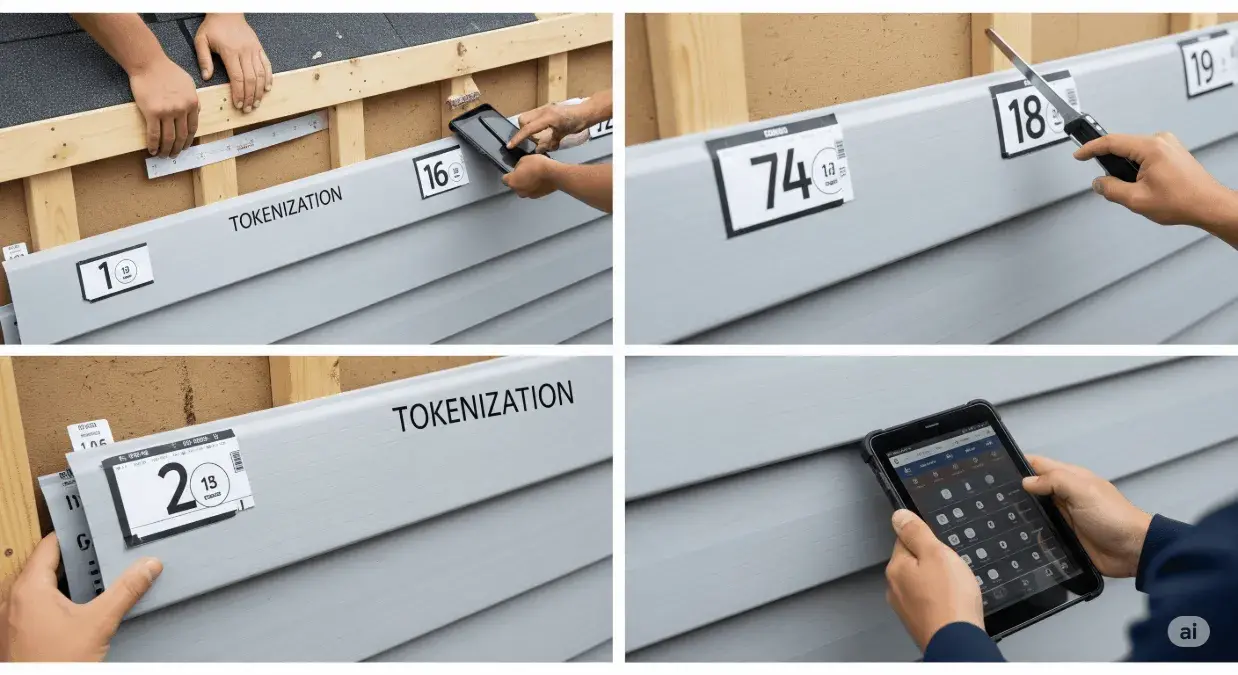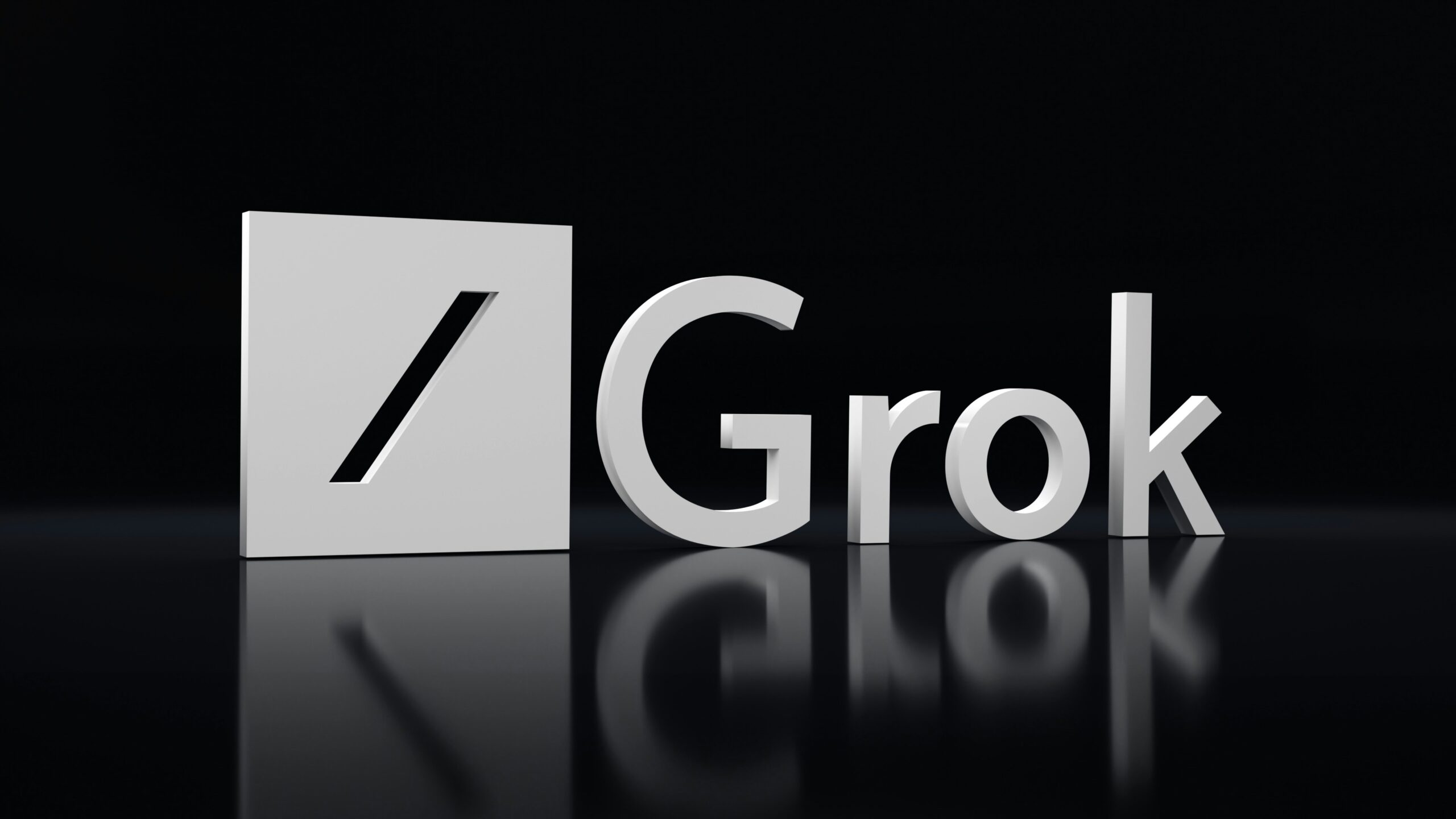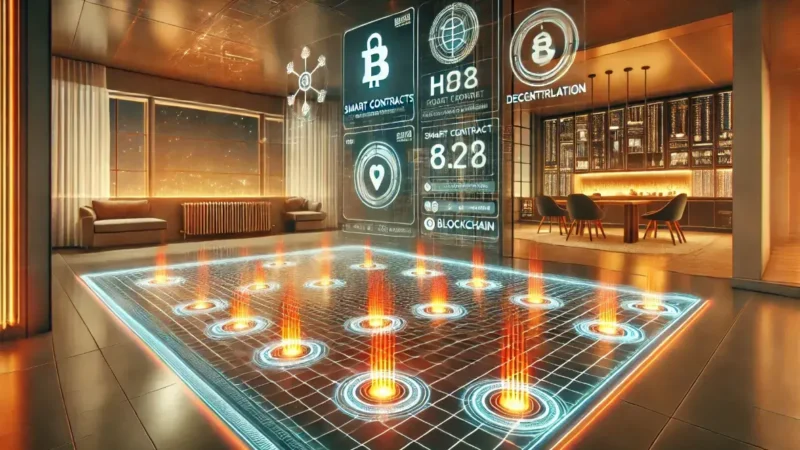The Secure Future: Tokenization in Siding Installation

The digital transformation sweeping across industries isn’t just about faster communication or online ordering; it’s fundamentally reshaping how businesses manage their most sensitive operations. For an industry like siding Barrie installation, traditionally hands-on and reliant on personal interaction, the integration of advanced digital processes might seem counterintuitive. However, the concept of “tokenization” is emerging as a crucial element in securing and streamlining these very operations, promising a more efficient and protected future for businesses like AG Exteriors Matter INC.
Understanding Tokenization Beyond Cryptocurrencies
When many hear the term “tokenization,” their minds immediately jump to cryptocurrencies and blockchain technology. While these areas heavily utilize tokenization, the concept itself is far broader and predates the crypto boom. In its essence, tokenization is the process of replacing sensitive data with a unique, non-sensitive identifier called a “token.” This token holds no intrinsic value or meaning on its own, making it useless to anyone who might steal it. The actual sensitive data is stored securely elsewhere, inaccessible to those who only possess the token.
Think of it like a coat check. When you hand over your coat, you receive a claim ticket. That ticket (the token) doesn’t have your coat’s value, nor can someone steal the ticket and get your coat unless they present it at the check and are properly authorized. The coat itself (the sensitive data) is safely stored in the back. This analogy, though simple, captures the core principle.
In the context of siding installation, tokenization of siding installation refers specifically to the process of authentication and authorization within the applications and systems that manage various aspects of this business. This includes, for instance, managing incoming installation requests, handling sensitive customer information, or overseeing the progress of construction work. AG Exteriors Matter INC, as mentioned, is an example of a company leveraging this approach to enhance their operational security and efficiency.
The Problem Tokenization Solves in Siding Businesses
The siding Barrie installation industry, like many construction-related fields, deals with a significant amount of sensitive information. This can range from customer names, addresses, contact details, and payment information to project specifications, material orders, and even employee data. Managing this data manually or through insecure digital systems presents numerous vulnerabilities:
- Data Breaches: Without robust security measures, customer databases can be prime targets for cyberattacks, leading to exposure of personal information. This can result in significant financial and reputational damage.
- Unauthorized Access: Project details, pricing structures, or sensitive client communications could fall into the wrong hands, leading to competitive disadvantages or privacy violations.
- Operational Inefficiencies: Manual verification and authorization processes can be slow, prone to human error, and create bottlenecks in workflows.
- Compliance Risks: Increasingly stringent data privacy regulations (like GDPR or CCPA) demand greater accountability and security for handling personal data. Non-compliance can lead to hefty fines.
This is where the tokenization of siding installation steps in, offering a robust solution to these challenges. By replacing sensitive data with secure tokens, businesses can drastically reduce their exposure to risk.
How Tokenization Works in Practice for Siding Companies
Let’s delve into practical scenarios where the tokenization of siding installation can be implemented:
1. Managing Installation Requests and Customer Data
Imagine a customer submits an online request for a siding installation quote. This request form collects personal details – name, address, phone number, email. Instead of directly storing this sensitive data in a multitude of systems or databases, tokenization can be applied.
- When the customer submits the form, their personal information is immediately tokenized. A unique token is generated for their request.
- This token is then used to track the request throughout its lifecycle – from initial inquiry to scheduling, quoting, and project completion.
- The actual sensitive customer data is stored in a highly secure, segregated data vault or system, accessible only through authenticated and authorized processes using the corresponding token.
- This means that sales representatives, schedulers, or project managers working with the customer’s request only ever interact with the token, not the raw sensitive data. If a system handling these tokens were compromised, the attackers would only gain access to meaningless identifiers, not the actual customer information.
2. Securing Payment Processing
Payment information (credit card numbers, bank details) is perhaps the most critical data to protect. Tokenization of siding installation offers a superior alternative to traditional payment processing methods.
- When a customer makes a payment, their credit card details are captured and immediately converted into a token by a secure payment gateway.
- This token is then used for all subsequent payment transactions. The actual credit card number is never stored on the siding company’s servers.
- If a data breach were to occur, only tokens would be exposed, rendering them useless to fraudsters. This significantly reduces the scope of PCI DSS (Payment Card Industry Data Security Standard) compliance for the siding company, as they are no longer directly handling raw card data.
3. Monitoring Construction Work and Project Management
Beyond customer interactions, tokenization of siding installation can also secure internal operational data related to ongoing projects.
- Each project can be assigned a unique token. All associated documents – blueprints, material orders, work schedules, progress reports, permits, and subcontractor agreements – can be linked to this token.
- Access to these documents is then controlled through an authentication and authorization system that verifies the user’s token. For example, a specific crew member might only be authorized to access documents linked to the project they are working on, preventing unauthorized viewing of other project details.
- This ensures that sensitive project timelines, budget details, or subcontractor agreements are only visible to authorized personnel, minimizing internal risks and enhancing operational security.
Key Benefits of Tokenization for Siding Businesses
The adoption of tokenization of siding Barrie installation brings a multitude of advantages to the forefront for businesses in this sector:
- Enhanced Security: This is the most significant benefit. By replacing sensitive data with non-sensitive tokens, the risk of data breaches and exposure of confidential information is drastically reduced. Even if a system is compromised, the stolen data is rendered useless.
- Reduced Compliance Burden: For businesses handling payment card information, tokenization can significantly simplify PCI DSS compliance requirements. Since the raw card data is never stored on the company’s systems, the scope of compliance audits is considerably narrowed. Similarly, it aids in adhering to other data privacy regulations by minimizing the direct handling of personally identifiable information (PII).
- Improved Efficiency and Streamlined Operations: Automated authentication and authorization processes powered by tokenization can accelerate workflows. Employees spend less time on manual verifications and more time on core tasks. For example, quickly authenticating a subcontractor’s access to project documents or authorizing a material order without exposing sensitive vendor details.
- Greater Flexibility and Scalability: Tokenization allows businesses to expand their digital services and integrations without compromising security. As the company grows and manages more projects and customer data, the tokenization system scales with it, maintaining a consistent level of protection.
- Mitigation of Reputational Damage: Data breaches can severely harm a company’s reputation, eroding customer trust and leading to long-term financial consequences. By preventing such breaches through tokenization, businesses can protect their brand image and maintain customer loyalty.
- Cost Savings: While there’s an initial investment in implementing tokenization systems, the long-term cost savings from reduced compliance burdens, fewer data breach incidents, and improved operational efficiency can be substantial. Avoiding hefty fines and the expense of managing a data breach response far outweighs the upfront costs.
Implementing Tokenization: Considerations for Siding Companies
For siding companies looking to adopt tokenization of siding installation, several key considerations come into play:
- Partnering with Reputable Providers: Unless a company has significant in-house IT and security expertise, it’s crucial to partner with experienced tokenization service providers or payment gateways that offer robust tokenization capabilities. These providers specialize in securely handling and storing sensitive data.
- System Integration: Tokenization needs to be seamlessly integrated into existing CRM systems, project management software, and financial platforms. This requires careful planning and potentially custom development to ensure smooth data flow and token usage across different applications.
- Employee Training: While tokenization reduces exposure to raw sensitive data, employees still need to understand the principles of data security and best practices. Training on secure handling of tokens and understanding the system’s authentication processes is essential.
- Regular Security Audits: Even with tokenization in place, regular security audits and vulnerability assessments are critical to ensure the system remains robust and free from potential weaknesses.
- Scalability Planning: As the business grows, the tokenization infrastructure must be able to handle increasing volumes of data and transactions without compromising performance or security.
Stay informed, read the latest crypto news in real time!
The Future is Secure: Tokenization as a Standard
The move towards more secure and efficient digital operations is not a passing trend; it’s a fundamental shift in how businesses operate in the modern world. For the siding installation industry, which relies heavily on trust, efficiency, and accurate data management, the tokenization of siding installation is quickly becoming an indispensable tool.
Companies like AG Exteriors Matter INC are at the forefront of this adoption, recognizing that security is not just an IT concern but a core business enabler. By embracing tokenization, they are not only protecting their customers’ data and their own operations from cyber threats but also positioning themselves for sustainable growth in an increasingly digital landscape. The ability to manage installation requests, customer data, and monitor construction work with enhanced security and streamlined authorization processes gives them a significant competitive edge.
The journey towards full digital maturity for many traditional industries is ongoing. However, with technologies like tokenization of siding installation, the path to a more secure, efficient, and resilient future becomes clearer and more attainable, ensuring that businesses can focus on what they do best: delivering quality siding installations with peace of mind. As the digital economy continues to evolve, the importance of robust security measures will only amplify, making tokenization a foundational element for any forward-thinking siding business.



